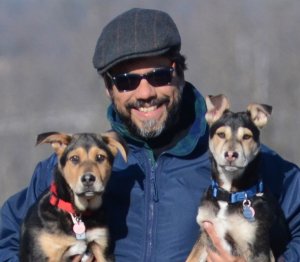Members, please login to view protected content.
Associate Professor of Biology & Ecology at Penn State University and associate researcher in the ecology department at the Museo de Historia Natural of the San Marcos National University in Lima, Peru
Migratory bird populations are undergoing rapid changes at present. Shifts in the timing of migration and breeding, and in range and abundance, are being reported in migratory systems across the globe. However, how and why these changes are happening remains unclear. Since the mid-1990s, we have been colour-ringing and tracking individual Icelandic black-tailed godwits on their migratory journeys across western Europe, with the help of a network of citizen scientists. Icelandic godwits have undergone remarkable increases in population and range size and advances in migratory timings in recent decades, and we have used our lifelong tracking of individuals to explore how and why these changes have occurred. These findings have revealed the role that climate change can play in driving change in migratory systems, and why these effects are often more commonly observed in short-distance than long-distance migrant species.
Dr. Tomas Carlo is Associate Professor of Biology & Ecology at Penn State University, and associate researcher in the ecology department at the Museo de Historia Natural of the San Marcos National University in Lima, Peru. He is an evolutionary ecologist studying how processes of avian frugivory and seed dispersal shape communities and their resilience. He is native to Puerto Rico, where he started bird watching and nature photography as a child in the mid 80’s. He has conducted most of his work in Puerto Rico, but recently expanded his work to South America (Peru, Brasil, & Argentina) and the Dominican Republic. His main research encompasses studies of the influence of fruit resources on habitat quality for birds, the relationship between fruit preferences and seed dispersal services of birds, and more recently, on the effects of bird seed dispersal on the assembly of successional forests. He has pioneered the developed of stable-isotope marking for study if seed dispersal at large scales. Carlo has also studied the relationship between bird movements and landscape heterogeneity using models and experiments, and the effects of reductions and losses of seabird colonies to the high-order ecological interactions in the terrestrial ecosystem of Mona island. He serves in the editorial boards of Biotropica and Oecologia as Associate Editor and Handling Editor respectively.

